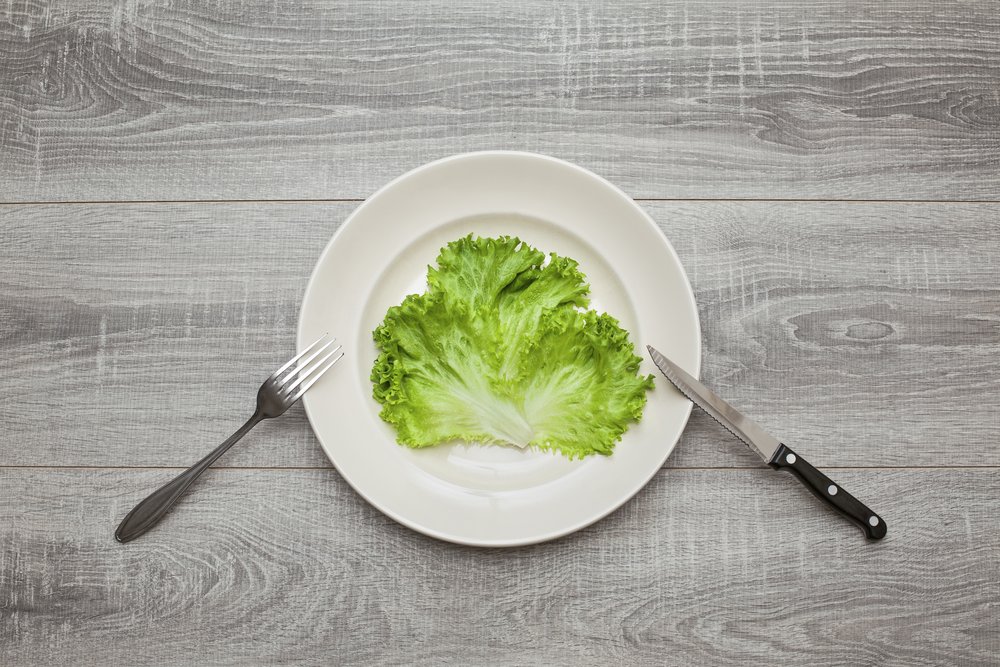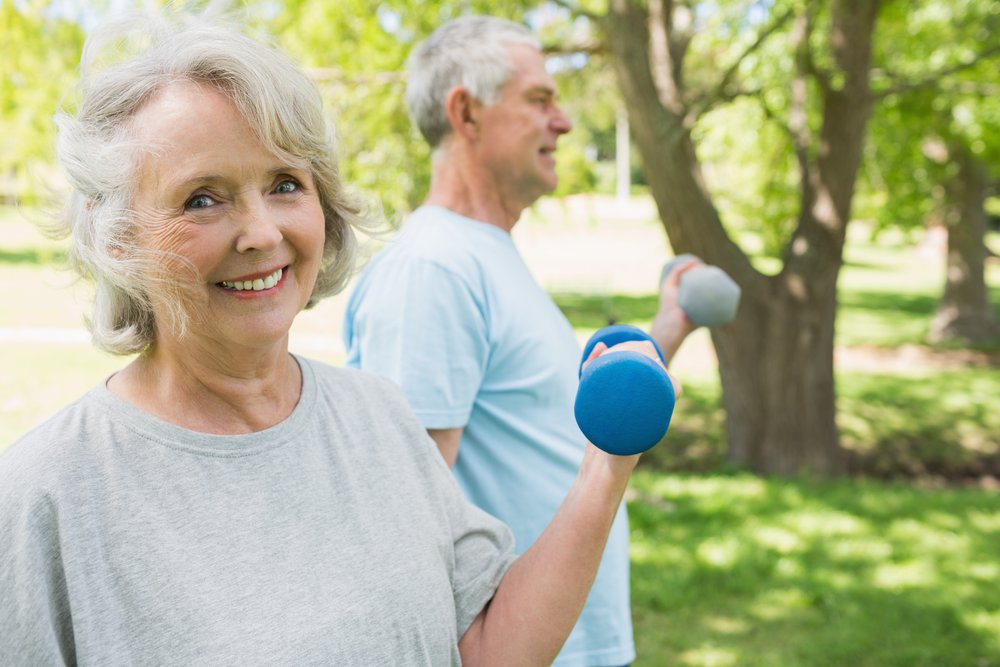Losing Weight After Age 60: Enjoy Your Golden Years to the Fullest

As you get older, many of the body’s functions start declining.
Perhaps you’re feeling less energetic, or maybe you’ve gained weight that’s just not coming off no matter what you do?
That’s absolutely normal and happens to most of us as we age.
Here’s why:
- Metabolism-boosting hormone levels decline, leading to excess fat around your waist, hips, and thighs.
- Sleep quality and energy levels decrease, so you might not be moving as much.
- Your skin becomes less elastic.
- You develop digestive issues, back problems, and muscle loss.
People over 60 usually make 4 critical mistakes that keep them from making any progress in reversing the aging process.
Keep reading to know what can be done to prevent it and improve your health.
Mistake #1: Ignoring Your Metabolism
One of the most common dieting tactics is to reduce or cut out food groups like carbs for quick weight loss.
The problem is that this drastic approach offers a temporary solution or doesn’t work at all.
“As you age, your body needs a certain amount of nutrients, including carbs, protein, and fat, plus the vitamins, minerals, and antioxidants that come with those foods to keep your metabolism going,” says nutrition and wellness expert Edibel Quintero.
When you reach 60, your metabolism slows down. If you deprive your body of essential nutrients, it won’t be able to burn calories efficiently and will end up storing them as fat.
If you decide to drastically change your eating habits, chances are you can ruin your health and start feeling even worse.
Instead of cutting out foods because some “new” diet out there recommends it, you should include them as part of a balanced diet.
Eating a combination of healthy meals selected just for you ensures that your body is getting all the nutrients it needs to keep your metabolism working to your advantage.

Tip #1: Balance out carbs, fats, and protein based on your age, physical shape, and medical conditions to achieve sustainable, healthy weight loss. Nutritional imbalances may put you at risk of diabetes, heart diseases, and weight gain. The best way to ensure that your body is getting everything it needs to thrive is to follow a personalized custom diet plan with professional guidance.
Mistake #2: Over-Restricting Yourself and Over-Indulging Later
Raise your hand if you’ve ever started a healthy food kick, only to desperately miss your favorite treats by Day 2.
When you restrict foods you think are “bad” (hello, cookies and chocolate!), you trigger that pesky little voice in your brain known as the “scarcity mindset.”
For instance, you restrict yourself only by allowing yourself to eat certain foods you think are good, then you start thinking about the foods you’re trying to avoid and crave them obsessively.
This leads to eating even MORE than you usually would, and then to punish yourself, you start this cycle all over again.
Any of this sounds familiar?
The thing is, you don’t have to fight the foods you love. Following this pattern is unsustainable and can damage your health in ways that will be hard to reverse.
But that also doesn’t mean that you should feast on whatever comes your way.
So what’s the solution?

Tip #2: The key is finding a happy medium between eating what you love and eating a healthy, well-rounded diet. You can easily do that by following a customizable diet plan based on your needs and preferences. That way, you’ll have some space to “cheat” by keeping snacks like cookies as part of your meal plan, but you won’t have to feel guilty because other healthy foods will balance everything out.
Personalize your meals and enjoy your favorite foods without ever feeling deprived – all while changing your health for the better and dropping pounds along the way.
Mistake #3 : Not Getting Enough Exercise
As you get older, life becomes more sedentary, and you start losing muscle mass quite rapidly.
“Muscle is a metabolically active tissue, which means the less you have, the slower your metabolism gets and the fewer calories you burn,” says Dr. Quintero.
That explains why you put on – and hold on to – those extra pounds as you get older.
Not to mention aching joints and constant back pain that can reduce your quality of life.
The good news is that adding some light exercise into your life can reverse muscle loss and help with body aches (if done correctly).
There are lots of low-impact activities that are safe for you and might actually help reduce pain – like walking, stretching, or a little bit of cardio.
“Exercise is one of the most effective non-drug treatments for reducing pain and boosting your metabolism, but you have to do it right,” says Quintero.
If you try to do it by yourself, it’s easy to damage your health even more by jumping into workout routines that focus on the wrong muscle groups or put loads of pressure on your joints or back.

Tip #3: You want to increase your activity levels, but your body needs time to adapt, so you’ll want to start slow and also make sure your exercise and diet go hand in hand.
The recommended approach is to follow personalized exercises that are suitable for you and are designed to focus on reducing your pain and re-building more muscle mass. Incorporate these exercises gradually as part of a personalized training and diet program, like Perfect Body.
Mistake #4 : Giving Up Too Early
Chances are, by the time you’re 60, you’ve tried your fair share of diets and workouts that only left you frustrated and hopeless.
OR you’ve found yourself thinking that gaining weight is part of the aging process, that some of your previous lifestyle choices have done irreversible damage, or perhaps that it’s simply too late.
It’s definitely possible to achieve better health and lose weight as an older person. You simply need the right tools.
Forget what you’ve heard on TV, read in magazines, and all those “magical” quick-fix weight loss solutions out there.
They don’t work because they’re created for the masses. Unfortunately, there isn’t a one-size-fits-all approach to weight loss or improving your health.

Tip #4: The outcome of aging is that your old routines don’t work anymore. You need to build new ones that celebrate the new stage of your life. You CAN enjoy a healthier and happier life if you simply follow a new approach that’s designed specifically for you.
Try a personalized routine for once, where meal plans and exercise routines are adjusted based on your lifestyle and health conditions.
Conclusion
In conclusion, seniors who want to enhance their general health and wellbeing can lose weight after the age of 60, and it is not only doable but also very beneficial. While losing weight can be difficult at any age, it definitely won’t get easier as we age due to changes in our metabolism, hormonal changes, and health concerns that are specific to our age.
By adopting healthy habits and routines and sticking to the nutritious yet sustainable weight loss plan, seniors can not only lose weight but also have more energy and better health in general.
Comments (8)
Leave a comment
Thank you for your comment

Very interesting
Thank you . It is an excellent guide and I happy to read and implement it
Thank you and blessings .
Sounds like a good plan